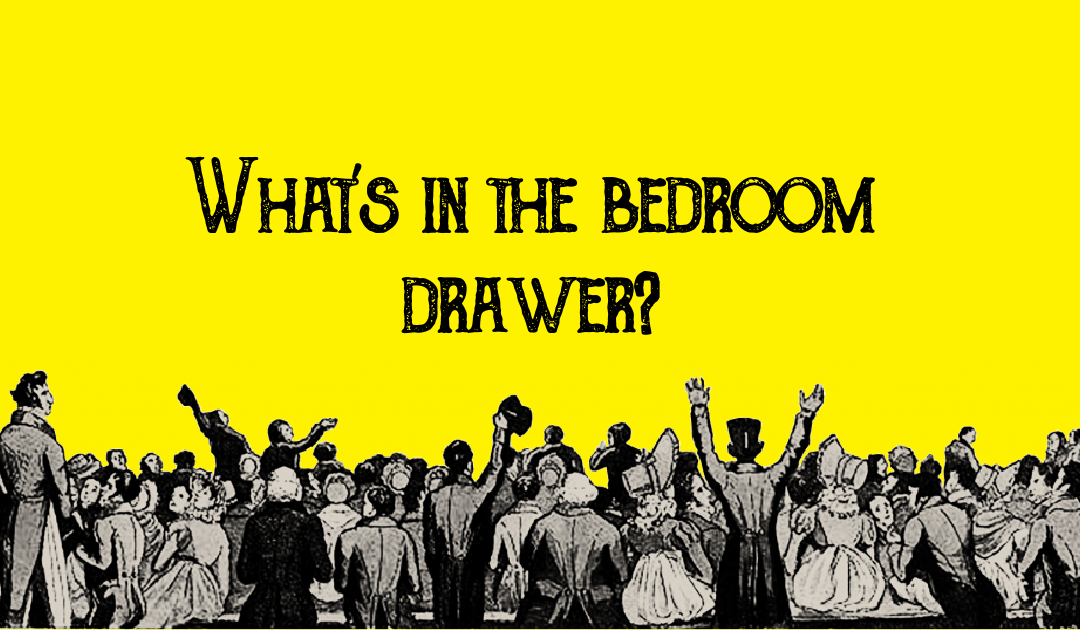Ever planned for privacy after death takes you from the land of the living?
Imagine if you died tomorrow. Would you want everything in your bedroom drawer in the hands of your loved ones?
Sometimes, it’s a little too much information to receive all a person’s possessions and particulars. Not everything we own should be handed over to our parents, children or relatives. Lifestyle considerations, histories, stories and more can have an impact on our memory after we die.
Some parts of our lives are better kept to a “need to know” basis!
This is especially true if you have a lifestyle that is not in keeping with your family’s views. Or you are a private person with private aspects you wouldn’t like discussed at the family dinner table.
Here are some of the times where you may need to make special arrangements for your possessions and belongings to maintain privacy after death
Sex, drugs and rock and roll
Would you want your Mum to find your magazine collection or the library of images on your computer? Are there costumes, toys and other items you may not want the kids to find?
We all have items that we may not want someone else to find if we were to die. Always consider that you may not want people to know all sides of your life and the impact of losing your privacy after death.
Some areas you may want to think about include:
- The ins and outs of your sex life
- Aspects of your sexuality others may find confronting
- Your drug taking, casual or otherwise
- Your memberships to groups, clubs and scenes such as swinging, nude four-wheel driving, naturalists and nudist camps and more
Pro tip:
It’s a great idea to find a trusted friend who can remove any items that may show a side of your life to your immediate family that they would not benefit from knowing. If you are sharing these aspects of your life with another person, asking them to secure the items after death. Let them know where they are kept, how to access them, and how to dispose of them. Or if you don’t have anyone within your friendship circle, consider retaining a discreet cleaning service.
Secrets for safety reasons
Your lifestyle and habits are not the only reason why you might want to maintain your privacy after death. There may be safety ramifications for yourself or the people who depend on you.
This may include:
- The networks you participate in. For example, if you help Domestic Violence survivors escape abusers or assist people come out about their sexuality
- If you have changed your identity for your own safety and/or to escape violence or oppression
- Anything you don’t want your children to find without appropriate support. E.g. parentage as a result of violent crime or sexual abuse or incest.
Pro tip:
Avoid storing information that may impact someone’s safety or mental health within the home. Instead, leave directions to find this information for a designated person to retrieve it via your authority. Or you can place it in a safe, locked and secure cloud or physical destination within the home with directions for access for a trusted individual.
The secrets within the family
One of the issues we face when people die is that secrets come out. It can be difficult to maintain privacy after death. Especially when it comes to journals, documents and photographs. While it’s better to tell the truth and be transparent about particular situations, this may not always feel like the right option when you’re alive. However, leaving people to find out secrets and stories without appropriate management can be a greater trauma than not receiving the information in the first place.
Some instances where this may require consideration are where:
- Family history and family tree information where heritage is not explained in full, or family members have grown up in institutions or have been adopted out
- Adoption has not been disclosed to an adoptee for any reason
- Family secrets and stories may have a negative or even traumatic impact on another person.
Pro tip:
Honesty is always the better policy. Try to disclose what you can before you die to minimise the impact on loved ones if you can. Failing that, don’t leave discovery to chance. Consider the role letters, documents and video may play in helping your loved one come to terms with secrets that are uncovered after you have died.

